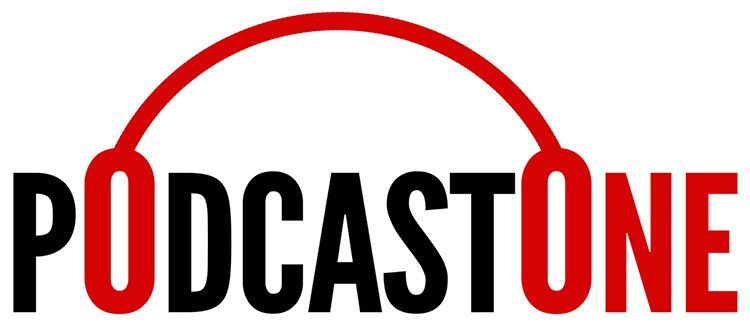
Weekly Roundup: March 23-27, 2020

John Kamensky
Emergency Acquisition Authorities. Federal News Network reports: “At least four agencies have implemented emergency acquisition authorities to make it easier to award contracts to support coronavirus relief efforts.” This includes both micro-purchase thresholds and simplified acquisition thresholds.
Defense Production Act. Federal News Network reports: “President Donald Trump’s executive order this week invoking the Defense Production Act gave the Department of Health and Human Services legal authorities it normally does not have to reorient domestic supply chains toward critical public health needs.”
Funding Boosts for Telework. Government Executive reports: “The White House has requested nearly $46 billion in emergency funding for federal agencies in response to the novel coronavirus pandemic, with much of the spending influx going toward boosting telework capacity, hiring supplemental workers and repatriating employees currently serving overseas.” (note: this article was written March 20; by March 25, the bill was $340 billion. See next article!).
$340B for Agencies. Government Executive reports: “Federal agencies will see a $340 billion boost for operations and response efforts in the face of the novel coronavirus under a more than $2 trillion stimulus package Congress is expected to pass this week, which the Senate passed late Wednesday after painstaking bipartisan negotiations with the White House.”
Telework for Months? NextGov reports: “Pentagon officials who are able to telework can expect to do so for “as long as necessary” and until the U.S. is “beyond the coronavirus crisis,” Defense Secretary Mark Esper said Tuesday. . . . . When asked how long people can continue working remotely while carrying on the Pentagon’s mission, Esper responded that “it's going to be weeks, for sure, maybe months.”
Leadership via Videoconferencing. In an op-ed for the New York Times Stanley McChrystal and Chris Fussell wrote: “Fifteen years ago, in the throes of our fight against Al Qaeda, the Joint Special Operations Command, where both of us served, needed to do this exact thing. We pivoted from being a centrally located, thousands-strong enterprise to a network of small teams spread around the world. . . . “Digital leadership” was not in the job description for our generation, but it became a critical skill for all of us to learn in the fast-moving and constantly changing fight.”
Oversight Needed. In an op-ed for Government Executive, Chris Miller and Robert Shea write: “As Congress readies the largest economic stimulus bill in American history to help stem the fallout from the COVID-19 crisis, fraudsters are waiting in the wings. Fraud flourishes when oversight is lacking or nonexistent. And when the federal government’s goal is to get as much money as possible into the hands of people who need it, as quickly as possible, oversight is usually an afterthought. The final bill is still being worked out, but the size of the stimulus—close to or exceeding $2 trillion—and the speed with which the money will be made available, should make oversight paramount.”
Michael J. Keegan
DOD official: 'Adversarial capital' threatens industrial base. The Defense Department is concerned that foreign investment will take advantage of small businesses in the defense industrial base reeling from the COVID-19 pandemic. Ellen Lord, DOD's top acquisition executive, told reporters March 25 the defense industrial base, which consists of more than 300,000 companies, is "vulnerable to adversarial capital," and DOD wants them to "stay in business without losing their technology" or be subject to intellectual property theft. "The foreign investment issue is something that I have been tracking for the last couple years. There is no question that we have adversarial capital coming into our markets through nefarious means," Lord said.
Higher easy acquisition thresholds help the pivot to telework. The Office of Management and Budget's revised thresholds for federal purchases are a welcome tool for agencies and federal contractors, according to a top executive at a government technology and professional services industry group. In a March 20 letter to agency heads, Margaret Weichert, OMB's deputy director for management, offered guidance on how contractors and federal agencies should operate in the COVID-19 response. As part of that guidance, OMB looked to expand its easy-acquisition tools. It raised federal agency micro-purchase limits from $10,000 to $20,000 for domestic buys and bumped up limits of simplified acquisition procedures from $250,000 to $750,000 for contracts inside the U.S. Agencies can also use simplified acquisition procedures for up to $13 million to buy certain commercial items, according to the memo.
Rigas to take on DDM role. Michael Rigas, the acting director of the Office of Personnel Management, is taking on a second government role as acting deputy director for management at the Office of Management and Budget. The arrangement mirrors that of Margaret Weichert.
Rethinking Managing and Leading in Real-Time. It’s hard to know what to do when confronted with a crisis at scale where there are no modern precedents. The fear is palpable—for our loved ones, our colleagues, and for those in our communities. And the economic toll has never had a more human face in our lifetimes than the mass shutdowns and disruptions unfolding in real-time. And, yet, we must find the strength to persevere and the creativity to reinvent on-the-fly. Failure truly isn’t an option.
For those leading and managing, it’s time to change. The life-safety of our colleagues is of paramount importance in every sector. The economic safety of our employees is right there with the financial security of our customers. And, the road ahead isn’t clearly marked. We’ll have to navigate together.
Focus on mission and collaboration in uncertain times. Leaders can be effective in a crisis by keeping their mission and focus top of mind, giving team members clear roles and relying more on collaboration, writes Dan Rockwell. "There's less time to explore interesting opportunities when flames are shooting out windows," he says. Leadership Freak
Take advantage of disruption to improve your skills. Use the time you've been given when life takes an unexpected turn to create goals that further your skills and craft a plan to achieve them, writes Ken Downer. "[W]hatever the new 'normal' becomes, we have a unique opportunity to shape it," he writes. Rapid Start Leadership
Books on Thinking on the latest episode of the Leadership and Management Book Talk Podcast
* * * * * *
Next Week on The Business of Government Hour: Special Edition of The Business of Government Hour – Leadership Stories. Leadership stories are at the core of The Business of Government Hour. Join host Michael Keegan in the first of a two-part series exploring the leadership stories and public service of nine government leaders encompassing a wide range of disciplines, a diverse set of experiences, and a vast span of geographies. This edition introduces 4 government executives leading missions and programs that include compensating the sick and injured from the 9/11 terrorist attacks, providing development and humanitarian assistance, facilitating government-wide acquisition, technology and innovation, and ensuring the statistical integrity of government data. That's next week on The Business of Government Hour.
Broadcast Schedule: The show airs Monday at 11 a.m., and Friday at 1 p.m. on Federal News Network 1500AM WFED
Anytime, Anywhere on...
https://www.podcastone.com/the-business-of-government-hour
https://itunes.apple.com/us/podcast/the-business-of-government-radio-hou





